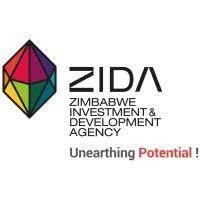
THE Zimbabwe Investment and Development Agency (Zida) has launched a new platform to address grievances of investors as the agency pulls out all stops to make the country an ideal investment destination.
The platform, Investor Grievance Response Mechanism (IGRM), is a formal process designed to address grievances arising directly from a government ministry, agency, or department (MDA) action and/or policy changes that may negatively impact an existing investment project, it said.
“Whether an investor faces adverse regulatory changes, contract breaches, or other investment-related challenges, this mechanism provides a direct and structured avenue for resolution,” Zida said.
“The aim is for these grievances to be addressed promptly and effectively, before they escalate. Similar mechanisms in other countries have proven effective in retaining investments by resolving disputes early.”
The platform emphasises early-stage resolution, meaning that grievances are not allowed to fester or escalate into larger, more complex issues that could jeopardise the investment.
Zida has to date issued licences to investments worth billions of United States dollars, dominated by the mining and agricultural sectors.
“By encouraging our investors to report grievances as soon as they arise and dedicating a team to investigate the matter, the agency will prevent minor issues from escalating into significant legal disputes that lead to operational disruptions and financial losses,” Zida said.
Through the IGRM, the investment agency is compelled to facilitate direct and timely communication between investors and relevant MDAs for the prompt resolution of grievances, contributing further to investor confidence and creating a stable and predictable investment climate.
- Lithium exports to surpass gold, says Zida chief
- Zim’s cannabis hopefuls face EU blowback
- Mining attracts US$202,7m investment in Q2
- Govt creates aviation firm
Keep Reading
“A transparent and efficient grievance resolution process such as this, which is aligned with international best practice for investment retention and expansion, fosters trust between investors and the State,” Zida said.
“Knowing that there is a reliable system in place to address concerns encourages both current and potential investors to commit resources, being confident in the stability and fairness of the investment environment.”
Zida’s chief executive officer, Tafadzwa Chinamo, revealed during a panel discussion at last month’s Chamber of Mines of Zimbabwe annual conference that the country is failing to attract big mining investors.
This is despite Zida licensing more mining investors than any other sector over the past two years.
He added that the lack of local pension funds, institutional investors and the stock exchange investing in Zimbabwe in significant amounts is also dissuading foreign investors from coming aboard. For years, investors have exercised caution in investing in Zimbabwe over several issues.
“Over the past four years, following the promulgation of the Zimbabwe Investment and Development Agency [Chapter 14:38] (Zida Act), investing in Zimbabwe has been an increasingly promising and fruitful endeavour. The Zida Act has been pivotal in affording investors with guarantees and protections, while outlining their rights and obligations,” Zida said.










